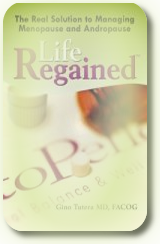To request your FREE consultation, click here.
Frequently Asked Questions
- What is hormone replacement therapy?
- Is hormone replacement therapy safe?
- Which hormones do I need and how is that determined?
- How frequently will I need to take hormone replacement therapy?
- How does one take hormone replacement therapy?
- How soon after treatment can I expect relief?
- Are there any side effects to hormone replacement therapy?
- Do only older people need to take hormone replacement therapy?
- Can I improve my sex life by taking hormone replacement therapy?
- Am I still a good candidate for hormone replacement therapy if I haven't gone through menopause yet?
- Is hormone replacement therapy only for women?
- Are there other medical benefits to hormone replacement therapy?
What is hormone replacement therapy?
Hormones are compounds that were engineered to look and behave in our bodies just like our natural hormones (which our bodies produce regularly). Hormones such as testosterone, estrogen, DHEA, thyroid, melatonin, and progesterone, to name a few, all have bio-identical hormone equivalents. These are processed by the body easily, with little to no side effects. That's because bio-identical hormones are created from natural ingredients (usually soy or wild yams) and thus will not have any harsh consequences on the body unlike earlier synthetic compounds that were used in the past for hormone replace therapy.
Is hormone replacement therapy safe?
Because bio-identical hormones are created from natural ingredients and are structurally identical
to natural hormones, they are considered the safest form of hormone replacement therapy on the
market today.
Which bio-identical hormones do I need and how is that determined?
To determine what bio-identical hormone replacement therapy is best, you will fill out a detailed
personal medical profile and undergo a blood test to check your hormone levels. Once your results
come back in a few days, our doctor will sit with you and discuss your results as well as a
recommended course of treatment, which is usually carried out on a regular basis for a certain
period of time.
How frequently will I need to take hormone replacement therapy?
Typically, hormone replacement therapy is carried out for several weeks, and then a second blood
test may be requested in order to gauge your response to the current regimen of therapy. Women
are typically tested 3 weeks into the procedure and men, 6 weeks. Your body may "kick in" and
rebalance your hormones after a certain period of time or you may find that you need ongoing
treatment to keep your hormone balance in check.
How does one take hormone replacement therapy?
Some bio-identical hormones are administered by tablet, injection or via tiny pellets (which are
inserted into a small incision just beneath the upper layer of skin and covered with a simple
dressing).
How soon after treatment can I expect relief?
Once you receive treatment, you should begin noticing a difference within 1 to 2 weeks. After 2 to 3
weeks of receiving the therapy, you should experience a marked improvement in your symptoms.
Are there any side effects to taking hormone replacement therapy?
A sudden increase in hormones in the body may trigger certain short-term side effects such as
increased hair growth on the face as well as an outbreak of acne. Women may experience sensitivity
in their breasts and spotting. Some of these side effects will subside on their own after your body has
adjusted to the therapy. Other symptoms like spotting can be alleviated through the ingestion of
progesterone capsules at bedtime.
Do only older people need to take hormone replacement therapy?
Hormonal imbalances can occur during any stage of one's life. If you are experiencing a number of
symptoms, such as frequent headaches, restlessness, exhaustion, dry skin, mood swings and weight
gain, you may be a good candidate for bio-identical hormone replacement therapy. Our bodies
change over time and certain milestones in our lives, including a lack of exercise and good nutrition,
can trigger an imbalance.
Can I improve my sex life by taking hormone replacement therapy?
If you've been suffering from a low libido, taking bio-identical hormones that simulate testosterone
can most definitely increase your sex drive and tremendously improve energy levels.
Am I still a good candidate for hormone replacement therapy if I haven't gone through menopause yet?
Yes. Although women who have gone through menopause are at risk of experiencing hormone
imbalances, they are not alone. Individuals who have given birth, experienced other milestones in
their lives, who have been working hard and/or not eating right, are also at risk.
Is hormone replacement therapy only for women?
Although women are commonly treated for hormone imbalances because of the onset of
menopause, men also are at risk of hormone imbalances, particularly when it comes to testosterone.
This can cause many side effects including lack of energy, lack of libido, poor concentration, higher
body fat and loss of muscle tone, to name of few. If you think you may be experiencing symptoms
because of a hormone imbalance, check with our doctor.
Are there other medical benefits to hormone replacement therapy?
In certain studies, taking bio-identical hormones has shown to have protective qualities against
breast and ovarian cancer, osteoporosis, high cholesterol, and heart disease.








